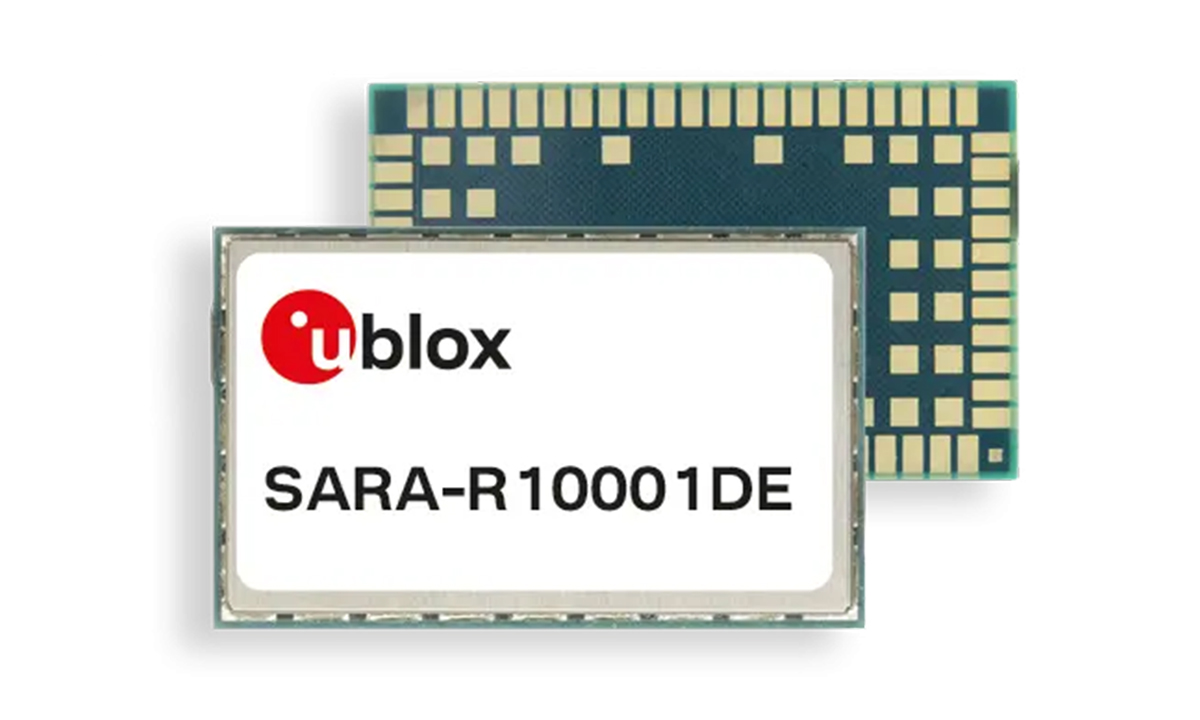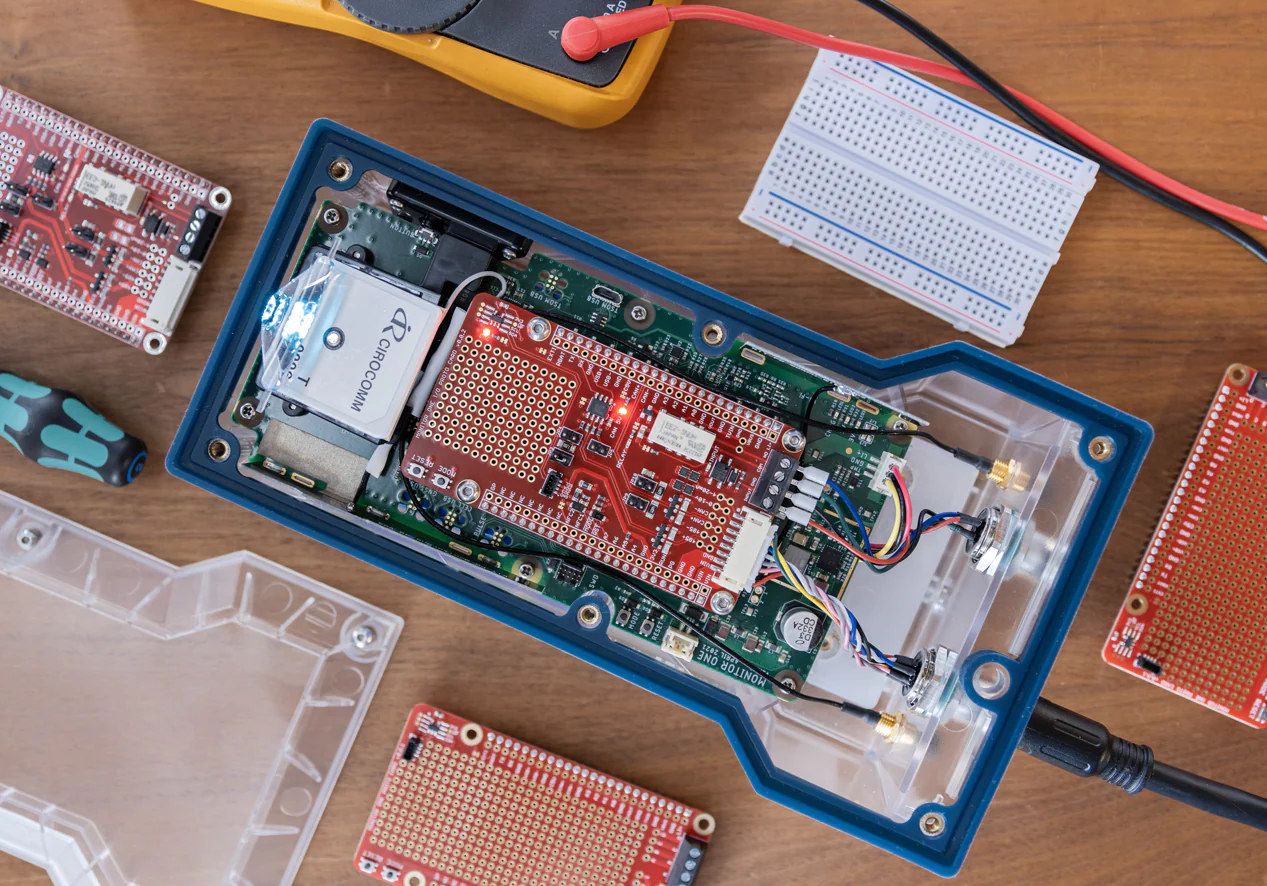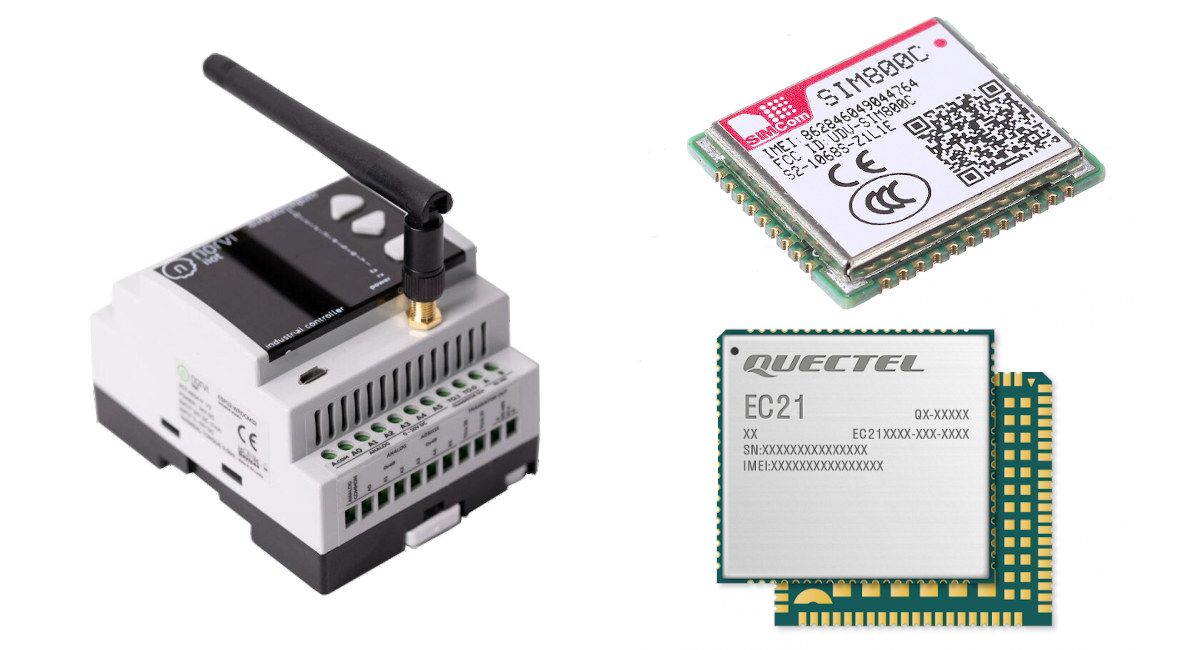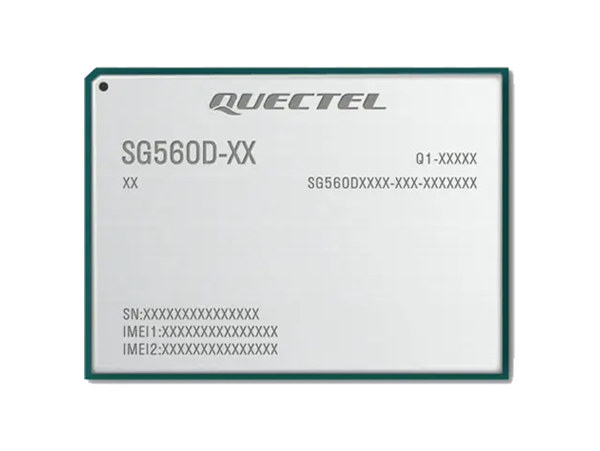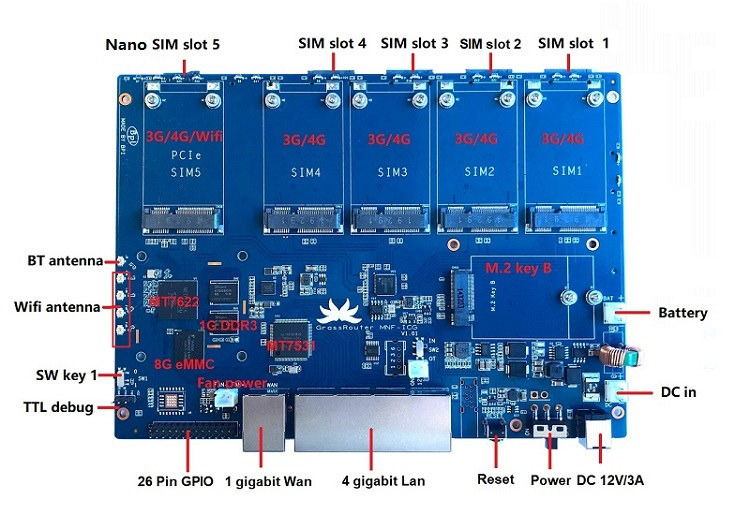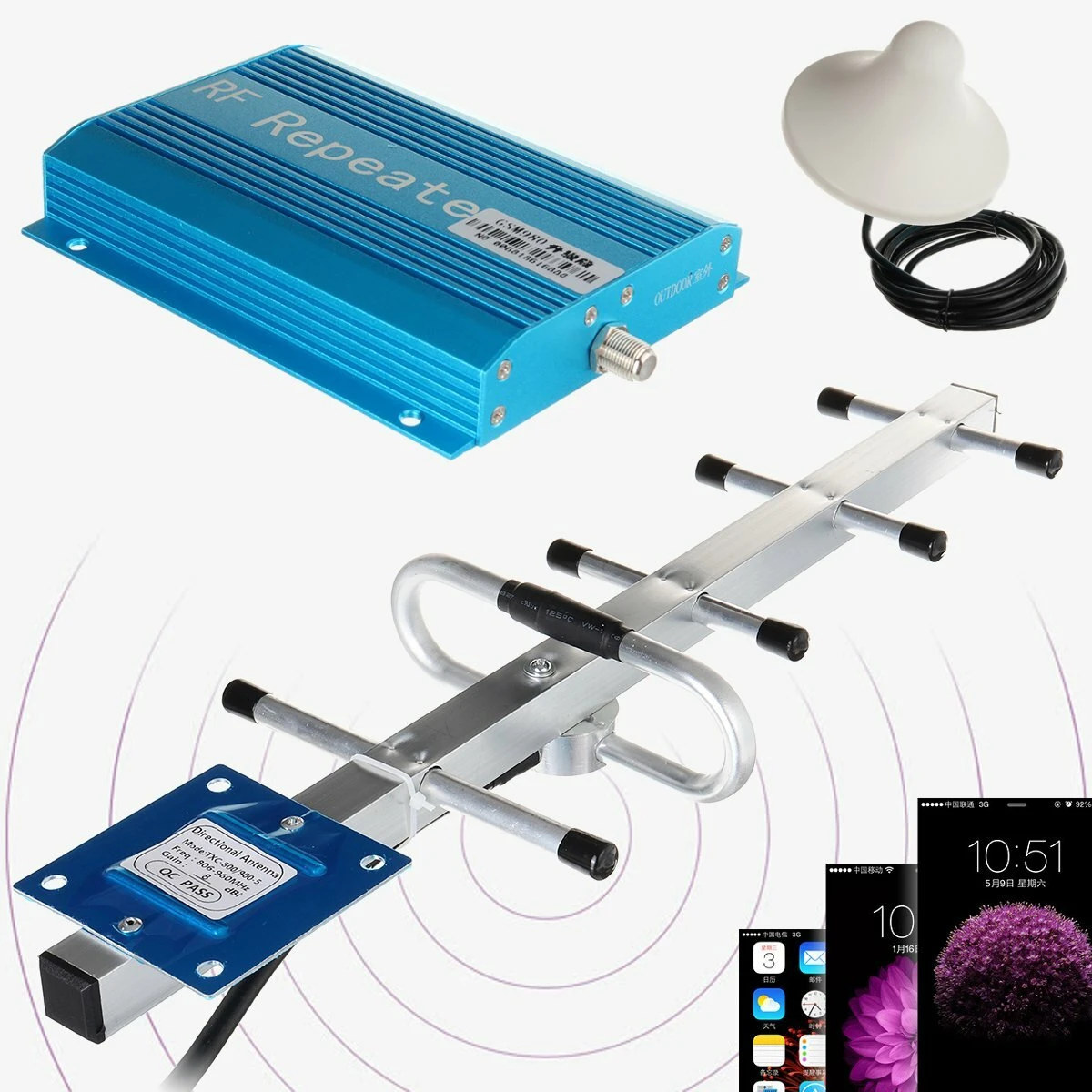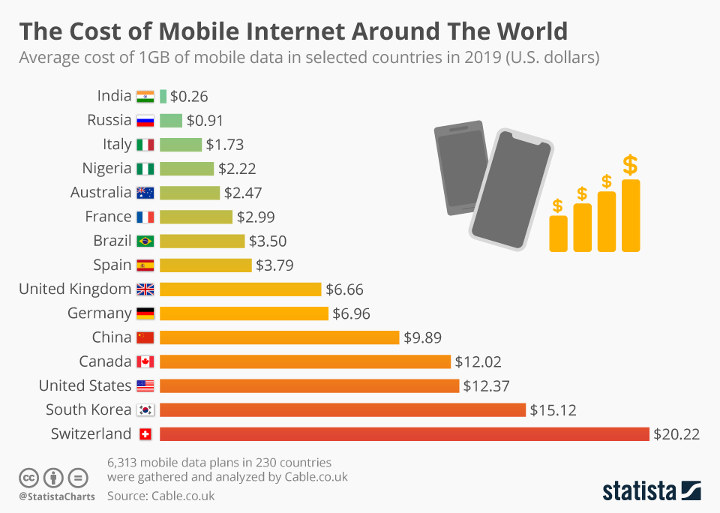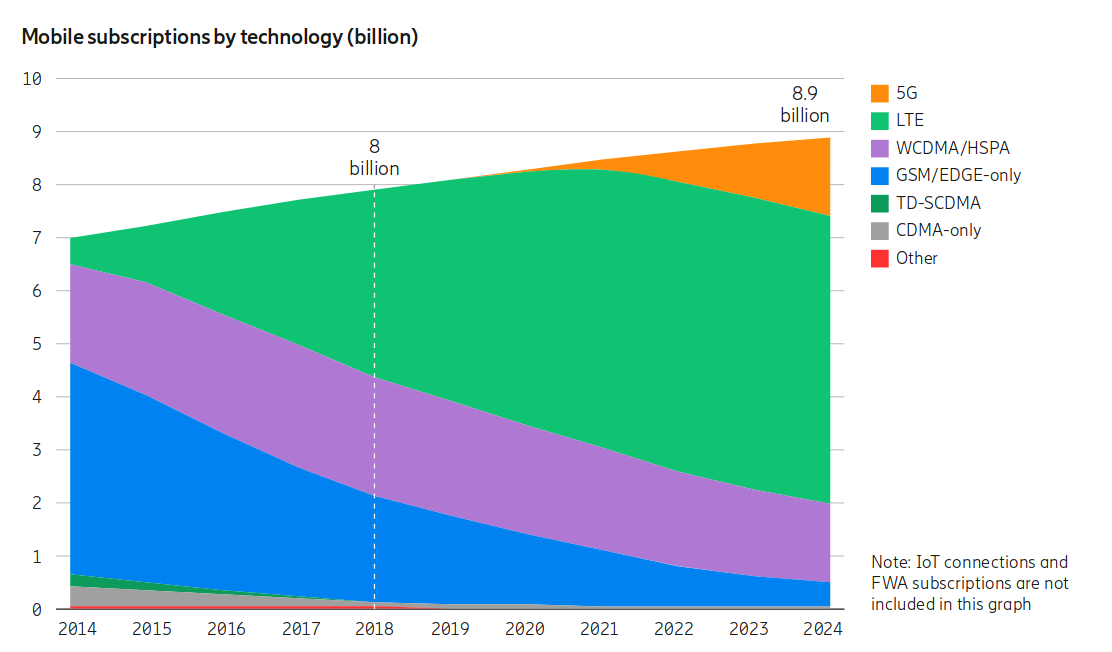u-blox has introduced the SARA-R10001DE, an LTE Cat 1bis module with integrated eSIM featuring multi-IMSI technology and eUICC functionality. The module is pre-provisioned with Wireless Logic’s Conexa IoT Network SIM profiles for global IoT deployments. The eSIM supports OTA using Remote SIM Provisioning, allowing the module to switch between multiple stored SIM profiles to connect to the best available network. Multi-IMSI technology allows eSIMs to store multiple International Mobile Subscriber Identity (IMSI) profiles, enabling dynamic network switching for uninterrupted connectivity. eUICC functionality, based on the GSMA standard, facilitates OTA updates and profile management, simplifying operator switching and ensuring global compliance. Although SARA-R10001DE is u-blox’s first LTE Cat 1bis module with an embedded SIM (eSIM), we previously covered the u-blox LEXI-R10 LTE Cat 1bis module and associated evaluation kit, as well as Cavli C17QS Cat 1bis module built around the Qualcomm QCX217 microcontroller. u-blox SARA-R10001DE module specifications: LTE module – SARA-R10001DE […]
Monitor One – A customizable cellular IoT gateway for industrial equipment monitoring
Particle’s Monitor One Developer Edition is a customizable cellular IoT gateway for monitoring industrial equipment packaged in an IP67 rugged enclosure with reference firmware, and suitable for rapid prototyping with support for a range of I/Os and sensors, and even a prototyping area for to solder your own circuitry. Like the company’s earlier Tracker One asset tracker, the Monitor One is based on the Tracker SoM with a Nordic Semi nRF52840 Arm Cortex-M4 wireless SoC for Bluetooth connectivity, a Quectel LTE Cat M1 (North America) or Cat 1 with 3G and 2G fallback (EMEA), u-blox Neo-M8U GNSS module, and an ESP32 for WiFi location support. The new customizable cellular IoT gateway still integrates with the Particle IoT PaaS (Platform as a Service), and the company also provides developer tools. The Monitor One Developer Edition is comprised of the following items: Monitor One base model fitted with a Particle Tracker SoM […]
NORVI GSM industrial controller with WiFi and cellular connectivity supports Arduino or ESP-IDF programming
We’ve already seen ESP32 WiFI & Bluetooth SoC combined with a cellular modem several times already, and a couple of days ago, I wrote about LILYGO T-A7068X ESP23 board with a 4G LTE modem. Iconic Devices team has made another cellular ESP32 product with the NORVI GSM industrial controller. The DIN-Rail mountable USB programmable controller is offered with a choice of SIMCOM SIM800L 2G-only modem or QUECTEL EC21-G modem adding 3G UMTS/HSPDA+ and 4G LTE cellular connectivity. It also offers Ethernet connectivity, digital and analog inputs, relay outputs, and a small 0.96-inch OLED information display with options varying depending on the exact model. NORVI GSM specifications: Main module – ESP32-WROOM-32 with ESP32-D0WDQ6 dual-core microcontroller @ up to 160 MHz with 520 KB SRAM, 4 MB flash, 2.4 GHz WiFi 4 and Bluetooth 4.2 connectivity Cellular module (one or the other) SIMCom SIM800L quad-band GSM/GPRS module Quectel E21-G worldwide 4G LTE, […]
Quectel SG560D 5G & WiFi 6E module runs Android 12, targets AIoT applications
Quectel SG560D is a 5G Sub-6GHz & WiFi 6E module for AIoT applications that runs Android 12 on a Qualcomm QCM6490 SoC with an octa-core Kryo 670 64-bit Arm CPU and a Qualcomm Adreno 643L GPU. The SG560D module is equipped with 4GB LPDDR4X RAM and 64GB UFS storage by default, supports up to 2520×1080 MIPI display at a refresh rate of 144Hz, and can deliver up to 14 TOPS for AI inference. Quectel SG560D key features and specifications: SoC – Qualcomm QCM6490 octa-core processor with one Kryo 670 Gold plus high-performance core up to 2.7 GHz, 3x Kryo Gold cores at 2.4 GHz, 4x Kryo Silver low-power cores @ 1.9 GHz, Adreno 643L GPU, 6th gen AI Engine delivering up to 14 TOPS, up to 4Kp30 H.265/H.264 video encode, 4Kp60 video decode; 6nm process. System Memory – 4GB LPDDR4X by default Storage – 64GB UFS flash by default Display […]
Cellular gateway board takes up to five 4G mini PCIe cards, one 5G M.2 module, seven SIM cards
One Banana Pi customer asked them to customize Banana Pi BPI-R64 Linux router board based on MediaTek MT7622 WiFi processor as part of their “BPI 4.0 server” OEM/ODM customization service. Specifically, they were asked to design a cellular gateway board with the same five Gigabit Ethernet ports as on the original board, but adding five mini PCIe sockets and SIM card slots for 3G/4G cards, and one M.2 socket plus two SIM cards for a 5G module. Here’s the result! Banana Pi “GrassRouter” cellular gateway board specifications: SoC – MediaTek MT7622E dual-core ARM Cortex-A53 processor @ 1.35GHz System Memory – 1 or 2GB RAM Storage – 8GB eMMC flash, MicroSD card slot Connectivity Cellular 1x 5G via M.2 Key-B module (USB 3.0 or PCIe bus), 2x SIM card slots. Up to 5x 3G/4G LTE via mPCIe expansion socket, 5x SIM card slots Ethernet – 5x Gigabit Ethernet ports (4x LAN […]
GSM repeater & signal booster extends 2G/3G/4G cellular coverage in your house or building
If your WiFi router range does not cover some of your rooms what do you do? You install a WiFi repeater or some of the more recent WiFi mesh networking solutions. What I did not know is that you can do something similar for cellular connectivity if you don’t quite get a reliable signal from your telco’s base station. Specifically, I’ve just come across a 900 MHz GSM repeater & signal booster that claims to be able to extend the 2G, 3G, and 4G cellular signal in a 100 to 300 m2 area, and sold for $59 on Banggood. Here are the specifications listed for the GSM repeater: Operating Frequency Band – GSM Uplink: 890-915Mhz Downlink: 935-960Mhz Gain: 70dbm Outdoor Directional Antenna Gain – 8dB Compatible with 2G / 3G / 4G cell phone signal Power Supply – 12V DC via 110-240V DC adapter Dimensions – 135 x 105 x […]
Cost of Mobile Data Around the World
The price of products often vary around the world due to taxes, regulations, and cost of living. In many cases, that’s just a few tens of percents, but in some others the price may vary a lot more, as in many folds. For example, medicines are usually way more expensive in developed countries – and harder to buy -, and based on a study by Cable.co.uk, the price of 1GB mobile data varies massively across the world with India having the cheapest average cost of $0.26 US, and Zimbabwe the highest at $75.20. Price varies a lot even for neighboring countries. So if you live in Geneva in Switzerland where the average price for 1GB is $20.22, it may pay off to get signal from France (if possible) where the average cost is only $2.99. One should bear in mind that determining the average price of 1GB of mobile data […]
Cellular Forecasts for 2024 – 1.5 Billion 5G Subscriptions, 4 Billion Cellular IoT Devices
5G has yet to really take off, as it’s only available in a few cities, but a recent report publishes by Ericsson provides some forecasts for the future of 5G and cellular IoT connectivity, as well as interesting numbers of the current state of cellular networks. There are now 7.9 billion mobile subscriptions, more than humans, including 5.7 billion mobile broadband subscription, with Asia clearly dominating the field due to its much larger population. Asia also accounts for most of the recent growth in subscriptions, and interestingly people in Central and Eastern Europe (including Russia) especially appears to need more than one mobile subscription with 142% penetration, which means on average one person has 1.4 mobile subscriptions. There are more subscriptions than people in most of the continents/countries, but to a lesser extent, and India (87%) and Africa (82%) are the only exceptions. The chart above allows us to look […]


